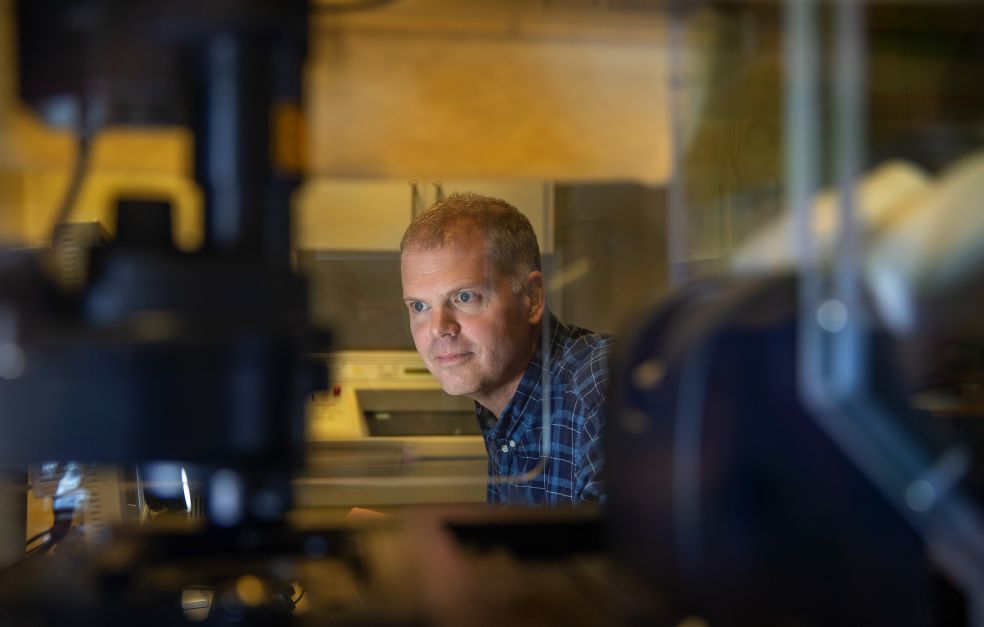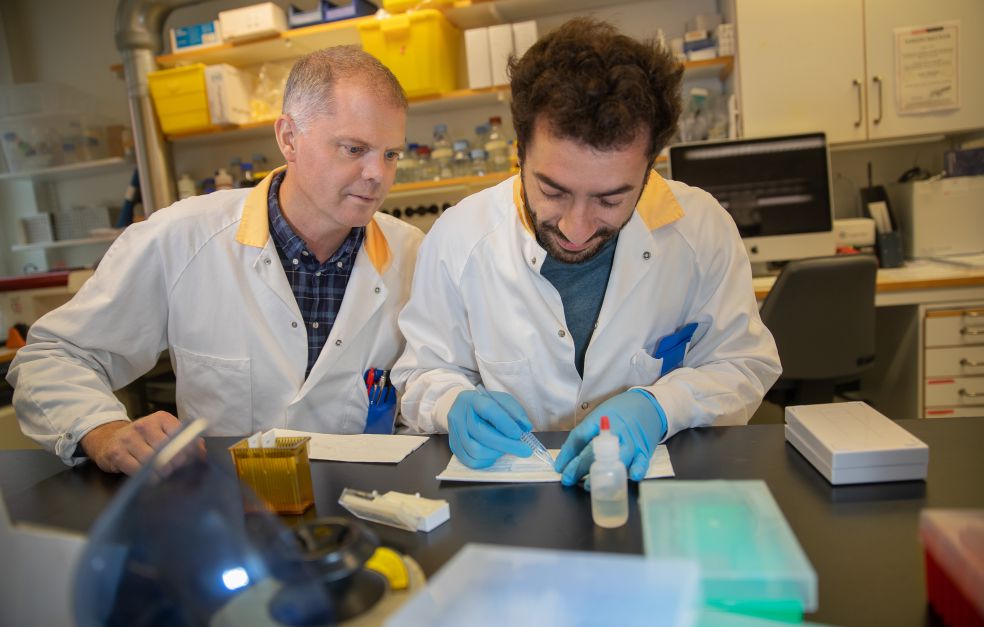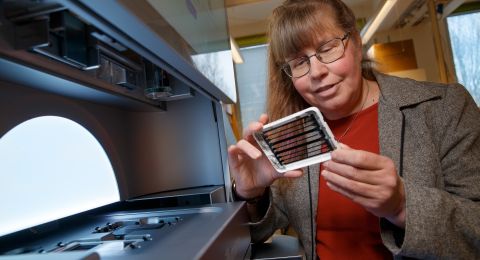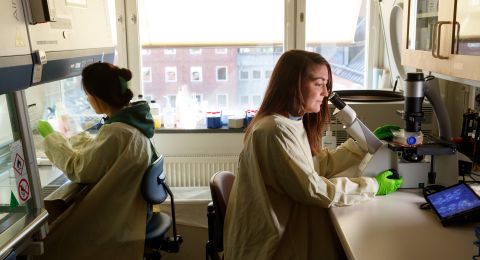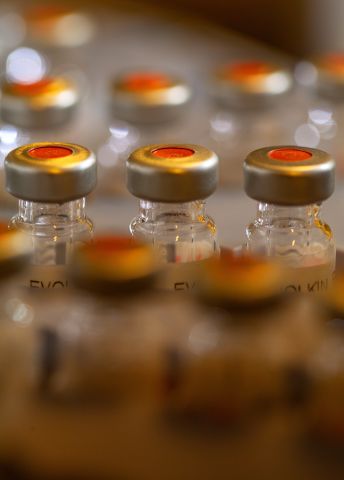
Project Grant 2017
Transforming microbiome research
Principal investigator:
Fredrik Bäckhed, professor of Molecular Medicine
Co-investigators:
University of Gothenburg
Göran Bergström
Mattias Lorentzon
Chalmers University of Technology
Jens Nielsen
KTH Royal Institute of Technology
Mathias Uhlén
Institution:
University of Gothenburg
Grant in SEK:
43.2 million over five years
Approximately one and a half kilos of bacteria live in our digestive tract. This community of microorganisms, or microbiome, also known as microbiota, may differ considerably from one person to another, and numerous research projects have shown that it impacts our health. But findings usually show merely that certain bacteria are linked to a certain disease, not in what way; and do not identify cause and effect.
Fredrik Bäckhed and his colleagues want to remedy this situation. In a project funded by the Knut and Alice Wallenberg Foundation, they will explore the role played by intestinal bacteria in type 2 diabetes, the commoner form of the disease.
“Many research projects have described a difference in microbiota between diabetics and healthy people. But which is the chicken and which the egg? Does the microbiota cause disease or does the disease alter the microbiota? And have studies of patients under medication identified an effect of bacteria on the disease, or in fact an effect of the medication on bacteria? “
Thousands screened to find undiscovered disease
Bäckhed is Professor of Molecular Medicine at the University of Gothenburg. The project he is heading actually began with a screening program several years ago. Over five thousand volunteers who had not been diagnosed with diabetes were screened in a search for people with undiscovered signs of the disease. Some 1,300 of the subjects had risk factors such as elevated blood sugar or an impaired ability to regulate blood sugar. Stool samples were taken from them, before treatment was given to those requiring it. Samples were also taken from about 500 healthy subjects. This will enable the researchers to study the microbiomes of people with early-stage diabetes, and with untreated diabetes, and compare that flora with the microbiota of people with normal blood sugar.
“So we have already laid the foundations. The funding we have received will enable us to pose the really pertinent questions: Are there changes in the gut microbiota of patients with type 2 diabetes that are unrelated to drugs? And is it possible on the basis of microbiota to identify people who will develop diabetes?”
From mapping the disease to controlling it
The researchers extract DNA from the bacteria in the stool samples and map it using a technique known as “shotgun sequencing”. The result will generate a map of bacteria that are more or less common in subjects with diabetes, and the substances the bacteria are capable of producing. For instance, the bacteria can manufacture more or less of a vitamin or certain fatty acids than in a healthy person. This may be the factor impacting the disease.
Three or four years on, researchers are now planning to reach out to the patients who had early stage diabetes. They want to see if they can use analysis of the original microbiomes to work out who developed diabetes, and who stayed healthy.
The next step is to see whether it is possible in practice to influence health by altering microbiomes. Bacteria from diabetics and from healthy subjects will be transferred to mice bred to lack microbiota of their own. Will they develop diabetes by having the same microbiota as a human with the disease?
The researchers also want to make a detailed study of the bacteria that seem important, and see exactly how they impact the contents of the intestine, and what substances they absorb.
Treating diabetes with bacteria
The relationship between microbiomes and health is a complex area, and there may be many dead ends on the road to a result. Some time ago Bäckhed was involved in a major project on microbiomes and child obesity, in which the researchers did not find as clear a connection as they had expected. But they did have a number of interesting findings to follow up.
He stresses that numerous factors influence diabetes, not only bacteria. And when bacteria are involved, there may be several kinds playing a part. It is therefore valuable to perform a study involving as many test subjects as possible. This will enable the researchers to find sub-groups with differing profiles: some lacking a given bacterium, others with an unusually large number of another bacterium.
“A really exciting long-term goal is to take bacteria from healthy individuals, and give them to people with diabetes, to see whether the disease can be treated in this way. In the future, a person at risk of developing diabetes may receive a capsule containing bacteria, start eating more dietary fiber, and avoid the disease. That’s the dream,” says Bäckhed.
Text Lisa Kirsebom
Translation Maxwell Arding
Photo Magnus Bergström

